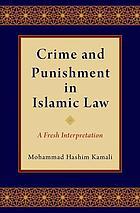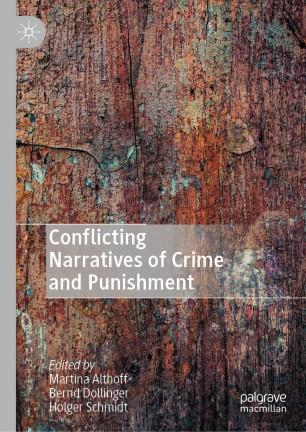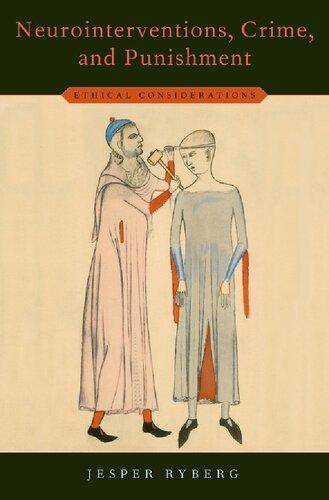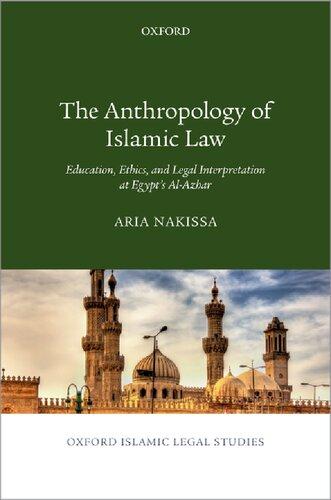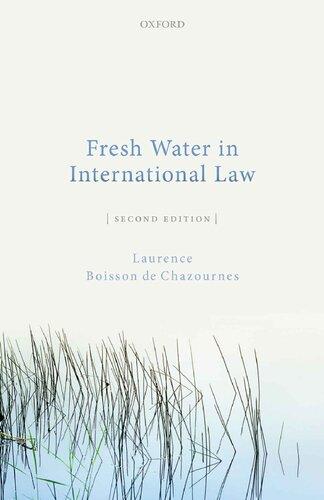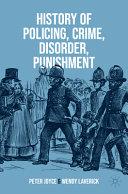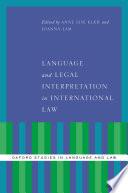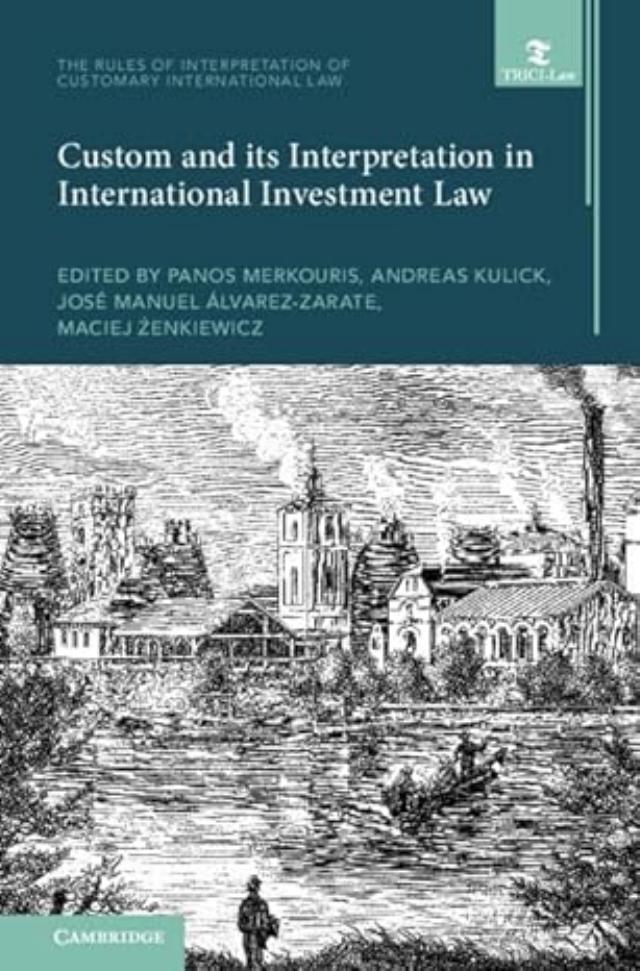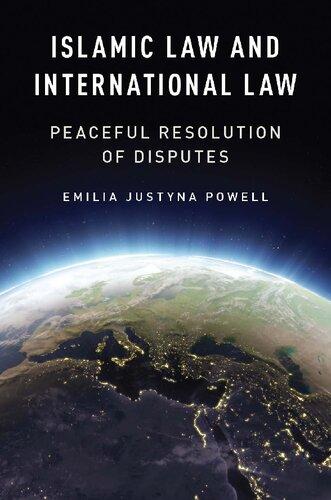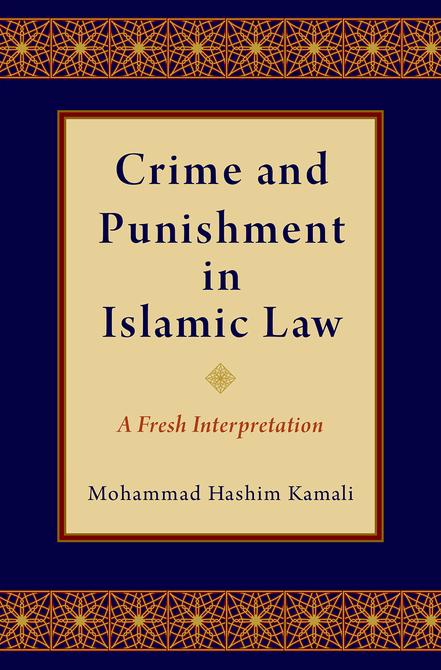1
Oxford University Press is a department of the University of Oxford. It furthers the University’s objective of excellence in research, scholarship, and education by publishing worldwide. Oxford is a registered trade mark of Oxford University Press in the UK and certain other countries.
Published in the United States of America by Oxford University Press 198 Madison Avenue, New York, NY 10016, United States of America.
© Mohammad Hashim Kamali 2019
All rights reserved. No part of this publication may be reproduced, stored in a retrieval system, or transmitted, in any form or by any means, without the prior permission in writing of Oxford University Press, or as expressly permitted by law, by license, or under terms agreed with the appropriate reproduction rights organization. Inquiries concerning reproduction outside the scope of the above should be sent to the Rights Department, Oxford University Press, at the address above.
You must not circulate this work in any other form and you must impose this same condition on any acquirer.
Library of Congress Cataloging-in-Publication Data
Names: Kamali, Mohammad Hashim, author.
Title: Crime and punishment in Islamic law : a fresh interpretation / Mohammad Hashim Kamali.
Description: New York, NY : Oxford University Press, [2019] | Includes bibliographical references and index.
Identifiers: LCCN 2018037058 (print) | LCCN 2018038098 (ebook) | ISBN9780190910655 (updf) | ISBN 9780190910662 (epub) | ISBN 9780190910679 (online resource) | ISBN 9780190910648 (hardcover : alk. paper)
Subjects: LCSH: Criminal law (Islamic law) | Punishment (Islamic law) | Criminal law—Islamic countries. | Crime—lslamic countries.
Classification: LCC KBP3791 (ebook) | LCC KBP3791 .K33 2019 (print) | DDC 345—dc23
LC record available at https://lccn.loc.gov/2018037058 1 3 5 7 9 8 6 4 2
Printed by Sheridan Books, Inc., United States of America
I. Introduction 1
PART ONE: Shariah Perspectives
II. Islamic Criminal Justice: An Overview 17
III. Ḥudūd in the Qur’an, Sunnah, and Fiqh 21
Ḥudūd in the Qur’an 21
Repentance and Reform (Tawbah, Iṣlāḥ) in the Qur’an 27
Juristic Views on Repentance 32
Ḥudūd in the Sunnah 41
Ḥudūd in the Juristic Expositions of Fiqh 49
Legal Maxims on Ḥudūd 58
IV. Prescribed Ḥudūd Crimes 60
Preliminary Remarks 60
V. Zinā (Adultery and Fornication) 63
Meaning and Attributes of Zinā 63
Proof of Zinā by Witnesses and Confession 65
Issues over Rape, Its Evidence, and Proof 67
Definition of a Guarded Person (Muḥṣan) 74
Issues over Stoning, Doubtful hadiths, and Abrogation 77
Modern Opinions on Stoning 84
Homosexuality, Incest, and Lesbianism 90
VI. Theft (Sariqah) 96
Theft from Relatives 97
Issues over the Quorum (Nisāb) 98
Issues over Safekeeping and Ownership 102
Proof and Punishment of Theft 105
Repentance and Its Impact on Punishment 107
VII. Banditry and Terrorism (Ḥirābah, also Qaṭʿ al-Ṭarīq) 111
Definition and Meaning of Ḥirābah 112
Ḥirābah in the Qur’an and Sunnah 113
A Fiqh Discourse on Ḥirābah 115
Punishment of Ḥirābah 118
Repentance in Ḥirābah 121
Suicide and Suicide Bombing 122
Terrorism Then and Now: A Survey of Contemporary Opinion and Research 127
Muslim Responses to Global Terrorism 132
Ḥirābah in the Qur’an Revisited 137
VIII. Issues over Apostasy (Riddah) 141
Review of the Source Evidence 142
Juristic Opinion on Apostasy 145
Apostasy in Malaysia: An Overview 147
IX. Slanderous Accusation (Qadhf) 150
X. Issues over Wine Drinking (Shurb) 157
XI. Enforcement of Ḥudūd Punishments: Procedural Constraints 166
XII. Philosophy of Ḥudūd 176
Deterrence and Expiation in Ḥudūd 177
Retribution and Retaliation 181
Rehabilitation and Reform 183
XIII. Discretionary Punishment (Taʿzīr) 186
XIV. Judicious Policy (Siyāsah Sharʿiyyah) 195
XV. Just Retaliation (Qiṣāṣ) 201
XVI. Blood Money (Diya) and Financial Compensation 213
XVII. Doubt (Shubha) and Its Impact on Punishment
XVIII. Islam as a Total System
PART TWO: Islamic Criminal Law in Malaysia
XIX. Hudud Bill of Kelantan 1993: An Overview
XX. Hudud and Qiṣāṣ Bill of Terengganu 2002
XXI. Problematics of the Ḥudūd Bills
Constitutional Issues 253 Position of Non-Muslims 257
XXII. Ḥudūd Debate Continued: An Update 2012–2017
XXV. Shariah Penal Code of Brunei Darussalam
XXVI. Islamic Criminal Law in Saudi Arabia
XXVII. Shariah Punishments in the Islamic Republic
XXVIII. Islamic Republic of Pakistan
XXXII. Islamic Republics of Mauritania and Maldives, and Islamic State of Yemen 321
Islamic Republic of Maldives 323
Islamic State of Yemen 325
I Introduction
This book essen T ially consists of a presentation of issues and reform proposals regarding the prescribed punishments of ḥudūd in Islamic criminal law. But the discussion is not confined to ḥudūd as such and also delves into other concerns relating to crimes and punishments in shariah. Two main topics are discussed in this book: first, issues that relate to presenting a holistic reading of the Qur’an and hadiths on ḥudūd punishments, just retaliation (qiṣāṣ), and the discretionary punishments of taʿzīr; and second, issues that are encountered in modern-day applications of Islamic criminal law. The first of these subjects, which is addressed in part one of the book, is the main preoccupation and takes up about two-thirds of this volume. Parts two and three examine the applied aspects of Islamic criminal law in a number of Muslim countries.
An overview of ḥudūd laws in the Muslim world today reveals many issues relating to perception. The Muslim masses tend to see ḥudūd laws and punishments as the core feature of Islam and the Islamic revivalist agenda. Ḥudūd laws are generally not enforced, or if they are enforced it is only selectively. Yet there is persistent debate over ḥudūd laws and even demand for their enforcement in many parts of the Muslim world. A number of Muslim countries and jurisdictions have consequently attempted to address ḥudūd-related issues, and those of Islamic criminal law generally, within their own set of possibilities and conditions. Islamic regimes that come to power as a result of a revolution or coup d’état “need to demonstrate immediately that they are making a start on the construction of a real Islamic state by implementing Islamic criminal law.”1 This
book attempts to present a picture of these developments, insofar as the present writer was able to construct this view within limitations on securing accurate information about sensitive religious issues. Obtaining accurate information presents a difficulty due to prevailing uncertainties over ascertaining true positions. Ḥudūd laws have become increasingly politicised, and thus politicians often skirt around religious issues just as they also stop short at exploring the jurisprudential dimensions of punishments. The reticence of politicians may also be due to their wish to not heighten concerns of non-Muslim segments of their populations. This has often meant that issues do not find effective responses, which is why it seems there are continuing debates about ḥudūd in many Muslim countries, some running over decades, without the emergence of clear responses. Misunderstanding and uncertainties tend to linger on; critics would even say, in Malaysia for instance, that debates on ḥudūd laws are kept on the back burner until election time, when they are revived because it is politically convenient. Juristic attitudes toward ḥudūd laws are also heavily influenced by the view that ḥudūd laws are determined by clear injunctions in the Qur’an and are therefore not amenable to juristic reconstruction and ijtihād. All of this has helped ḥudūd laws to remain as a mainstay of imitative scholarship (taqlīd) such that even leading schools of law have balked at exercising original thinking and ijtihād over them. The issues at hand are longstanding and demand a blended approach that is informed by relevant factors, even venturing outside the jurisprudential aspects of a subject if the quest for relevant answers is to be meaningful and to advance out of the prevailing impasse over Islamic criminal laws in the Muslim world.
Muslim countries and jurisdictions have generally shied away from the enforcement of ḥudūd punishments due to their apparent severity. Yet because of public sensitivities and politicisation of the subject, parliamentarians, judges, and jurists have also not shown a willingness to depart from hallowed precedents in favour of a fresh and holistic understanding of Qur’anic dispensations on ḥudūd. This naturally makes the challenge of adjustment and reform even more difficult to address.
That said, the main thrust of this book is to offer a fresh interpretation of the sources of shariah on the key issues discussed herein and to show how the Qur’an and Sunnah can open a path to possible reform of Islamic criminal law. It hardly needs to be emphasised that a receptive climate of opinion should exist on the part of religious and political leaders to ijtihādbased responses over issues. To those who take a position that ijtihād does
not proceed when there is a textual injunction,2 it may be said that one would need to understand the textual injunction in the first place before saying that it is definitive (qaṭʿī) and close therefore to ijtihād. In advancing this argument, the discussion also presents the views and contributions of prominent twentieth-century ulama and scholars on criminal law issues and attempts to integrate these views in the book’s conclusions.
A discursive review and appraisal of Islamic criminal law is also called for due to the many changes in modern societies in response to the rampant tides of secularity and materialist culture of the postindustrial revolution. Globalisation and the contemporary human rights discourse have added new dimensions to the existing challenges of innovative interpretation and ijtihād in the twenty-first century. How Muslim countries and jurisdictions present their penal laws and procedures to protagonists of human rights is arguably a matter of concern to Islamic civilisation and its claim to universality and inclusiveness, its commitment to justice, its inner resources, and its ability to accommodate changing needs of modern societies and make necessary adjustments along the way.
Islamic criminal law has lagged behind, as already mentioned, due to the stronghold of the imitative tradition of taqlīd. Instead of trying to bridge the yawning gap between the law and social reality and to address the challenges, the proponents of taqlīd engaged in exaggerations. Ḥudūd laws are sometimes seen as paramount indicators of the Islamic identity of states and societies. To measure the Islamicity of a state or a community of believers by reference to a set of punishments is not only a reductionist practice but also tantamount to judging Islam by one of its unwanted elements. A good performance record of a government, Islamic or otherwise, is based on minimising criminality and the recourse to punishment. Islam stands on the Five Pillars (arkān),3 and these principles do not address ḥudūd laws, qiṣāṣ, or any aspect of criminal law. Punishment of any kind is rather remote from the spiritual core of Islam, yet the general public has maintained a highly exaggerated image of ḥudūd punishments as a litmus test of the Islamicity of their governments. This development is largely based on long-held associations and public perceptions that call for reappraisal and adjustment.4
The Qur’anic outlook on punishment may be characterised by its emphasis on retribution, deterrence, and reform. This book is based on the premise that the conventional fiqh approach to formulation of the underlying meaning and philosophy of punishments does not adequately reflect the totality of Qur’anic guidance on this subject. Adding rehabilitation
and reform to the penal philosophy of ḥudūd is not only scripturally justified but tantamount to acknowledging that crime is not a totally isolated phenomenon and that a society increasingly becomes an unwilling partner in the rising tide of criminality and aggression. It is also important for a society to address juridical issues in their proper context to reach well-moderated responses to these concerns. Which should come first, implementing punishments or justice? And what is the higher purpose of shariah and the ultimate goals of the punishments? To ignore this ordering of priorities is one of the challenges of ḥudūd.
The remainder of this introductory chapter presents a summary of the various themes and chapters of the book.
The discussion in part one under “Shariah Perspectives” starts with a general characterisation of Islamic criminal law and proceeds to provide a more integrated reading of the ḥudūd verses in the Qur’an. This overview covers a number of reform proposals and recommendations on ḥudūd laws, along with just retaliation (qiṣāṣ) and discretionary punishments. These issues can be appraised and adjusted in line with the broader outlook of the Qur’an on punishment, which has not been duly integrated in juristic doctrines of the various schools and scholars of earlier times. The fiqh-based discussion and analysis that follows reviews the scholastic jurisprudence of ḥudūd and identifies positions of the leading schools of Islamic law.
There are only four offences—namely adultery, theft, slanderous accusation, and banditry/terrorism—for which the Qur’an has prescribed punishments, and in none of the relevant passages is there a mention of ḥadd or ḥudūd as such. The Qur’an has also not used ḥudūd specifically in the sense of punishment, let alone fixed and mandatory ones, for which they are typically understood today and throughout the longer history of Islamic juristic thought.
Ḥudūd Allāh (God’s limits) in the Qur’an is a much broader concept, which is confined neither to punishments nor to an exclusively legal framework but can provide a comprehensive set of guidelines on moral, legal, and religious themes. Juristic thought has, however, followed a different trajectory whereby this broader view of ḥudūd was reduced to mean quantified, mandatory, and invariably fixed punishments. The four offences for which the Qur’an has prescribed punishments were expanded, in the fiqh presentations of ḥudūd, to six offences and, according to an alternative version, to seven—and this was done in the face of clear evidence that advised a minimalist rather than a maximalist approach to crimes and
punishments.5 Additionally, whereas the Qur’an has, in all four instances where specified punishments occur, made provisions for repentance, correction, and reform (tawbah and iṣlāḥ), juristic doctrine has either left this out altogether or reduced it to a mechanical formality that can hardly be said to be reflective of the original teachings of the Qur’an, thus clearly and unequivocally opening ḥudūd laws to the prospect of repentance and reform.
In the works of fiqh one also notes a certain linkage between ḥudūd and ḥaqq Allāh (Right of God), on the one hand, and ḥaqq al-ādamī (or ḥaqq alʿabd –Right of Man) on the other. There is no Qur’anic requirement, nor an expressed justification, for these linkages. Some of the juristic particularities that originate in this scheme not only lead to inconsistencies but also contribute to a degree of regimentation in the development of juristic thought. The fiqh presentation of ḥudūd is marked by a tendency to move further away from the original Qur’anic emphasis on repentance/rehabilitation and reform and toward engaging in juristic technicalities.
One would not deny, of course, the reality of differentiation between private rights and public rights nor of differences between civil claims and crimes. Islamic law clearly recognises private rights, such as the right of ownership, the right to inheritance, and a wife’s right to financial support, without necessarily labelling these as ḥaqq al-ādāmī or ḥaqq al-ʿabd as such. A simple distinction between civil claims and crimes is not an issue, but to refer to certain crimes as “Rights of God” is not only odd (as if God Most High wishes to be so punitive!) but also blind to the truism that in Islam all rights and obligations originate, theoretically at least, in the will and command of God. This is clearly acknowledged in the Islamic theory of ownership—which suggests that God is the true owner of all things and that human owners are only the trustees of what they own—without necessarily labelling ownership as either the “Right of God” or the “Right of Man.” This is because the two sets of rights under review are almost always an extension of one another and convergent. A substantive revision of the philosophy and jurisprudence of ḥudūd is therefore called for, indeed necessary, simply because technicality and regimentation need to be removed or minimised to facilitate a balanced implementation of the original vision of Islamic criminal law and ḥudūd.
Part one also looks into issues of evidence, proof, and admissibility, with reference particularly to adultery and theft. The discussion also looks into issues pertaining to apostasy (riddah); slanderous accusation (qadhf); the punishment of theft, banditry, and terrorism (ḥirābah); and
consumption of alcohol (shurb). The main question raised concerning the latter issue, shurb, is whether it should be included among ḥudūd offences at all. Other ḥudūd-related issues discussed in part one concern the status of non-Muslims and the much-debated yet crucial distinction between rape and zinā. This is followed by views on the distinction between a married Muslim (muḥṣan) and one who is unmarried (ghayr muḥṣan), which has a bearing, in turn, on the application or otherwise of stoning (rajm) as a punishment.
The subsequent chapter on ḥirābah (terrorism) begins with various definitions that the leading schools of Islamic law, both Sunni and Shia, have given to this crime. The quest to present a more relevant reading of the Islamic law of ḥirābah in relation to contemporary terrorism entails a closer look at the existing evidence in fiqh, on one hand, and more recent research on terrorism on the other. Having looked into the jurisprudence of ḥirābah and a wider understanding of terrorism, the chapter revisits the Qur’an and attempts a fresh interpretation of its relevant passages that can tackle some of the unprecedented issues of global terrorism today.
The philosophy of ḥudūd punishments, which is also the subject of a chapter in part one, provides a brief entry into the three most commonly known theories of punishment in criminal law, namely retribution, deterrence, and reform. The review of the evidence shows that repentance and reform do not find a suitable place in the fiqh expositions of ḥudūd. One likely explanation may be that premodern penal systems were ill-equipped to integrate the Qur’anic dispensations on repentance and reform into their working modalities, hence their exclusive focus on fixed penalties and an overly punitive approach to the subject. To apply quantified punishments is a relatively facile task, one might say, for courts and enforcement agencies. Instead they should devise carefully nuanced approaches and procedures of the kind now known and practiced (e.g., probation orders, remand centres, suspended sentences, community service, etc.), in addition, that is, to custodial sentences. These approaches should be contemplated, selectively at least, in a revised theory of punishments in Islamic law.
The enquiry into evidence concerning the punishment of stoning (rajm) for adultery highlights differences of opinion among the leading schools of Islamic law. There are two levels of inconsistency in the evidence concerning stoning: one is that the Qur’an is totally silent on this punishment and only the Sunnah seems to have validated it; and the evidence also shows that stoning was practiced during the lifetime of the Prophet. Yet
there is uncertainty as to the chronological sequence between the rulings of the Qur’an’s “100 lashes of punishment” for adultery and the Sunnah’s provision on stoning. Which was revealed earlier and which later? These questions play a crucial role in determining the continued validity or otherwise of stoning as a punishment, and the answers are somewhat less than definitive. To establish a chronological sequence would bring into play the subject, in turn, of abrogation (naskh) and the possibility that stoning was actually replaced and abrogated by the standard Qur’anic punishment of 100 lashes for all cases of adultery and fornication for married and unmarried persons alike. Due to these issues and lingering uncertainties over them, the Kharijites and MuÒtazilah overruled the validity of stoning altogether and upheld flogging as the only punishment for zinā.
The majority of Islamic schools and scholars (jumhūr) have accepted, nevertheless, the ruling of the Sunnah to be conclusive on stoning. Yet the answers that they have given to certain questions were based on presumptions that originated in methodological guidelines pertaining either to abrogation (naskh) or specification of general principles (takhṣīṣ alʿām).
The second level of inconsistency that appears in the hadith reports concerning the punishment of adultery is concerned less with stoning and more on the validity or otherwise of two supplementary punishments, namely of banishment in combination with flogging for an unmarried Muslim (ghayr muḥṣan) offender and of flogging in combination with stoning for a married Muslim (muḥṣan) offender. During the Prophet’s lifetime, these combinations were applied in some cases but not in others. Existing evidence in the hadith thus shows inconsistency, which has, in turn, generated considerable debate among Muslim jurists, who were evidently able to draw different conclusions from the relevant hadiths. In this connection, the majority have validated one year of banishment as a supplementary punishment to the flogging of 100 lashes for an unmarried person, though the Ḥanafīs have not approved of this punishment. This is mainly because the Ḥanafīs considered banishment to be a taʿzīr discretionary punishment and not an integral part of the prescribed punishment of flogging; the two cannot be combined, but the majority has held otherwise. An additional consideration is that banishment to another place is not advisable as it would expose the new community to the possibility of repetition, continued debauchery, and mischief.
An analysis of these issues and the lingering uncertainties over the punishment of adultery is then followed by an opinion survey of some of the leading twentieth- century scholars and ulama, including Muḥammad
Abū Zahrah (d. 1974), Muṣṭafā Aḥmad al-Zarqā (d. 1999), Yūsuf alQaraḍāwī, Muḥammad Salīm al-ʿAwā, and others who have questioned the veracity of the evidence on stoning as well as the conventional distinction between married and unmarried persons and how it is involved in determining punishment.
The discussion continues with a similar opinion survey of Muslim scholars on the implementation of ḥudūd generally in contemporary Muslim societies. Should the ḥudūd penalties be enforced as an isolated case in a legal system that originates mainly in Western thought and institutions? Ridding the Muslim world of unwanted colonial legacies was a key objective of the Islamic revivalist movement of the latter part of twentieth century and the rise of so-called political Islam. Many constitutions, civil codes, or criminal codes that are currently in force in many Muslim countries and government institutions are arguably modelled after a Western prototype and tend to be secularist in orientation. This has confronted contemporary Muslim scholars with the question as to which has the greatest priority in legal decisions: an Islamic government, shariah, or ḥudūd. The discussion in this part concludes with a brief analysis of a renowned hadith (i.e., legal maxim)— that ḥudūd must be suspended when there is doubt. This chapter also advances an argument that rampant secularity and temptations to sin generate a need to be interpreted through deeper readings of hadiths.
Whereas the core aspects of shariah are regulated by textual injunctions of the Qur’an and hadith, rulers and judges have also been granted discretionary powers under shariah principles of judicious policy (siyāsah sharʿiyyah) and taʿzīr, which allow rulers and judges to determine the best manner in which shariah can be administered. Yet the constitutional principle of legality presents a concern, in cases of both siyāsah and taʿzīr, that discretion must be carefully tailored to the purpose it is supposed to serve and must not exceed the bounds of government under the rule of law. In light of these remarks, the discussion turns to questions on exploring (1) the existence (or otherwise) of any boundaries and limits that Islamic law itself provides over the operation of siyāsah and taʿzīr; and (2) how these limits should be understood in a constitutional system of government.
The book’s subsequent discussion of scholastic jurisprudence regarding just retaliation (qiṣāṣ), blood money, and financial compensation (diya) offers an overview of their contemporary applications—each in a separate chapter—that underline the issues they present in various
jurisdictions. The discussion offers suggestions as to how qiṣāṣ and diya may be adjusted and brought into harmony with the given terms of a modern constitution and legal system while maintaining harmony with the higher purposes, or maqāṣid, of shariah.
Whereas the prescribed ḥudūd punishments generally fall under the rubric of the Right of God, or public rights, qiṣāṣ punishments mainly follow the Right of Man (ḥaqq al-ādamī), which are each governed by separate rules. This binary classification of rights is clearly a juristic addition that lacks a scriptural origin, therefore it is amenable to further adjustment and ijtihād. This book takes the view that the role that qiṣāṣ and diya played in tribalist societies of earlier times may no longer be significant in the context of a modern legal system where a tribal structure of values is no longer present, thus suggesting parallel adjustments for their application.
More specifically, just retaliation in the Qur’an is explained against the background of pre-Islamic practices of qiṣāṣ and how the Qur’an injected equality and objectivity into the rubric of legal institutions. The Prophet and his Companions, especially the second caliph ʿUmar b. al-Khaṭṭāb, continued with the reform of qiṣāṣ law. Having reviewed the brief history and jurisprudence of qiṣāṣ, the chapter then advances a perspective on how the Qur’an, although recognising qiṣāṣ as a right primarily of the next of kin of the deceased, has placed the administration of qiṣāṣ entirely in the hands of rulers and judges rather than the next of kin of the deceased. Thus rulers and judges may not take revenge nor retaliate beyond the objective standards of justice.
Blood money (diya) features in the succeeding chapter, which highlights two separate aspects of the subject. One of these is a certain departure in the scholastic jurisprudence of fiqh from the principle of equality that finds clear expression in the Qur’an and Sunnah. The schools of law have on occasions introduced views that tend to compromise the egalitarian tenor of the Qur’anic dispensations on diya with respect to women and non-Muslims. Another aspect of diya presented in the book’s treatment of this subject is how it is utilised in the modern laws of some Muslim countries with relation to traffic and work-related accidents, pensions, and life insurance.
The subject of doubts (shubhat) features prominently in the fiqh manuals with reference especially to ḥudūd punishments. A later chapter ascertains the identification and measurement of doubt and how it impacts the implementation aspects of ḥudūd punishments. Highlighted in this connection is the renowned hadith that mandates suspension of ḥudūd
in the presence of doubt. Then the discussion draws attention to a new dimension of doubt/shubha that modern society conditions have brought about in light of the said hadith.
The final chapter on shariah perspectives is titled “Islam as a Total System,” which presents a roundup of twentieth-century Islamic scholarship on Islamic criminal law. How should shariah be understood as an integrated system? How does Islamic criminal law operate within the confines of a modern constitution and respond to issues of human rights and concerns of modern critics of ḥudūd? Responses to some of these questions are then offered in light of the Qur’anic directives on justice (ʿadl) and fair treatment (iḥsān) and the concern for accuracy in applying punishments. If human rights discourse and modern constitutional laws advance the cause of justice and better regulation of punishments, ways should be found to contextualise, selectively at least, the contemporary applications of Islamic criminal law. The country-based surveys on the applied aspects of Islamic criminal law that occupy the balance of the book are subdivided into two parts: one looks into developments in Malaysia, and the other provides an overview of developments in about fourteen other Muslim countries.
Part two, “Ḥudūd in Malaysia,” provides a detailed coverage of the ḥudūd debate in Malaysia, focusing mainly on a reading of two Ḥudūd Bills introduced, respectively, in the northern states of Kelantan in 1993 and then in Terengganu in 2002 under the Islamic Party of Malaysia (known as PAS) that ruled those two states.6 The two bills were duly passed by state legislatures in the two states and received assent from their respective sultans at the time, but both bills have remained in abeyance ever since due mainly to constitutional issues and resistance on the part of the federal government, then under the leadership of Prime Minister Dr. Mahathir Mohamad. Ever since its ratification in 1993 by the State Legislative Assembly of Kelantan, the Hudud Bill of Kelantan,7 and Islamic criminal law generally, have been the focus of public debate and media coverage in Malaysia. The book’s discussion revolves around the six ḥudūd offences the two bills have introduced. This is a narrative mainly of the actual problems encountered and how they have been raised, discussed, and debated in public media and the multireligious context of Malaysia. Issues have been raised concerning the actual implementation of the two bills and how they are likely to impact the non-Muslims of Kelantan and Terengganu. Then the discussion presents representative views and responses of non-Muslim spokespersons of Chinese and Indian political parties. The Muslim protagonists of
ḥudūd, especially the PAS, have persistently challenged their Chinese and Indian counterparts and critics on how the ḥudūd bills should be seen and understood and, in some cases, how they can be amended and improved. The chapter also examines provisions of the Hudud Bill of Kelantan that stand in conflict with Malaysia’s Federal Constitution of 1957 and the Penal Code of 1936 (amended on numerous occasions and last revised on 7 August 1997).
Malaysia has in many ways been singled out as a showcase as it presents an interesting scenario of the applied aspects of Islamic criminal law and its problematics. Malaysia is a multireligious society, a federal state, and a self-acclaimed democracy,8 where the present author also resides and where a lively ḥudūd debate has been ongoing for the last three decades. The Muslims of Malaysia that constitute about 60 percent of its population take Islam, the Malay language, and customs as the three major criteria of their identity. Islam is in many ways a living tradition and way of life of the Malay Muslims and constitutes a major theme and context, such that almost all important socioeconomic and political developments in this country must negotiate and find accommodation with Islam. In Malaysia, Islam as a religion and, increasingly, as an emerging legal system—after the colonial suppression and marginalisation of shariah—can be seen as a case study as to the ways and means by which it has engaged with contemporary issues generally and those of concern to the present study. The case of Malaysia shows how a reasonably successful country—with a market economy, high exposure levels to the outside world, and a credible claim to inclusivity—deals with Islamic and shariah-related issues. Unlike Indonesia, Pakistan, and some other Muslim countries where Islam is the religion of the vast majority of the population, Muslims in Malaysia are challenged by the presence of much larger and economically powerful non-Muslim minorities.
Issues have also arisen over shariah courts’ jurisdiction and the extent of their powers to adjudicate ḥudūd offences in Malaysia.9 References have been made to policy statements by both state and federal government representatives on possible amendments to the Hudud Bill of Kelantan 1993 that have featured in the media over the years. This is followed by similar, although less detailed, coverage of the Hudud Bill of Terengganu 2002, which was also tabled before the Terengganu Legislative Assembly by the PAS. The Terengganu Hudud Bill is a near-replica of its Kelantan antecedent, albeit with minor amendments with reference particularly to non-Muslims. The book’s presentation of these issues highlights the likely
implications of applying this bill to a dual system of law and justice that obtains in Malaysia.
Even after twenty- four years since the introduction of the Hudud Bill of Kelantan (HBK), it appears that one can hardly claim meaningful progress on the ḥ udūd issue in Malaysia. Why this is so becomes a compelling question. The HBK has come under criticism on specific points as well as generally and thus indicates an eagerness to inflict punishment and pain. This approach may need to be moderated by other influences that are also important in the formulation of a comprehensive philosophy of punishment.
It seems ironical that Kelantan has gone so far as to celebrate Hudud Day as an annual event, as if to prove its credentials as the one, true authority on the religion among the thirteen states of Malaysia by being the most punitive. It also seems odd somehow to choose punishments as deserving of celebration and calling on people to publicly observe the occasion. It is easy to forget, however, that ḥudūd laws are not even implemented in Kelantan—yet the people are still asked to observe Hudud Day!
An update of more recent developments in the ḥudūd debate from 2012 to 2017 is presented in a separate section of the chapter. Here one may see the arrival, for the first time, of a different political scenario that tends to be more receptive to approval of HBK by the federal government.
Part three on “Ḥudūd in Other Muslim Countries” provides brief comparative reviews of ḥudūd-related legislation and developments in a select number of Muslim countries in Asia, Africa, and Southeast Asia. This part consists mainly of bird’s-eye views on the legal system in each of the countries under review, including their particular circumstances and concerns. The book’s comparative coverage of Islamic criminal law issues in these countries also touches on common features of ḥudūd as well as the gap between theory and practice of ḥudūd in these countries. In almost every country discussed in the book, issues arise over the religious sensitivity of shariah punishments that negatively affect, in turn, the prospects of advancing open rational discourse about ḥudūd. The climate of understanding concerning ḥudūd has been increasingly restricted in the postIslamic revivalist environment of these countries.
Notwithstanding the difficulty of disentangling the politics of ḥudūd from jurisprudence, the book’s main concern is to advance an understanding of the jurisprudence of ḥudūd through a reading of the sources of shariah, especially the Qur’an and Sunnah, in a way that a modern student of law can understand. The discussion also aims to open the space
for advancing fresh interpretations and perspectives on scriptural sources relating to shariah and ḥudūd along with fiqh-related developments.
Governments in Muslim societies have generally not encouraged ijtihād-oriented discourse over Islamic issues. This epiphenomenon to some extent involves rampant secularism and marginalisation of the role of religion and ulama in the nation-states of Western origins, which have dominated postcolonial polities in much of the Muslim world. The increasingly assertive tone of Islamic revivalist discourse in many multireligious societies has been espoused by similar developments among other religious communities. Muslim governments are consequently faced with fresh demands to accommodate different voices and be more inclusive in their quest to find answers to religious and shariah issues. These concerns are thus no longer treated as if they were exclusively the realm of ulama and jurisconsults; leaders are asked to be more receptive to other voices that may express the needs and aspirations of non-Muslim constituencies.
History has shown that Islam is no stranger to inclusivity and that it has the resources to accommodate different voices—amply demonstrated by the Prophet Muḥammad’s own example and precedent on how he dealt with the Arab pagans of Quraysh and Jews and Christians. That early precedent has also in many ways reverberated throughout the longer history of Islam, which was severely disrupted by the colonialist onslaught and the problematic legacies left in its wake.
The argument of this book is thus mainly over the approach that is taken towards understanding shariah and Islamic criminal law. In the history of Qur’an interpretation (tafsīr) and hadith, as well as the main body of Islamic juristic thought, the literalist approach has had the upper hand over a rationalist and pragmatic understanding of Islam and shariah. Although the schools of law (madhhabs) did to some extent open the scope for rationality and pragmatism in the formulation of fiqh rules, their attempts were on the whole timebound and reflective of the concerns of the respective societies and cultures in which they occurred.
The historical controversy between Rationalists and Traditionists (ahl al-raʾ y and ahl al-ḥadīth, respectively) was essentially over restricting the scope of ijtihād to a degree that Imam al-Shāfiʿī (d. 205/820) confined ijtihād to analogical reasoning (qiyās) alone when he wrote in his renowned Risālah that ijtihād and qiyās were two words that had the same meaning. With reference to Qur’an hermeneutics, it is common knowledge that tafsīr based on opinion (tafsīr bi’l-raʾ y) was given little weight vis-a-vis tafsīr on the basis of precedent (tafsīr bi’l-maʾthūr). The uṣūlī methodological
thought of earlier centuries ignored the broader approach to the understanding of shariah taken by advocates of the maqāṣid al-Sharīʿah (goals and purposes of shariah), which laid greater emphasis on the ends and purposes of the law. It was not until the eighth century Hijrah that the Andalusian scholar, Ibrāhīm al-Shāṭibī (d. 790/1388), developed his theory of the maqāṣid and opened a new chapter in the history of Islamic jurisprudential thought. Yet it was already too late for al-Shāṭibī to make much of an impact on scholastic jurisprudence and the works of the leading schools of law (madhāhib), which had by then developed to an advanced stage. Scholastic studies also showed limited acceptance of the maqāṣid al-Sharīʿah theory due to its somewhat philosophical overtones. Twentiethcentury Islamic scholarship showed renewed interest in the revival of the maqāṣid and original ijtihād that may well mean departing from some of the hallowed positions of conventional jurisprudence on a number of issues including ḥudūd
The present generation of Muslims would need to continue the tenor of those endeavours and offer relevant responses to the issues they face in light of their own needs and experiences. Considerations of piety and devotion in the interpretation of Qur’an and hadith were strong enough perhaps to keep jurists and interpreters close to the texts of sacred scripture. Even in the sphere of juristic thought (fiqh and ijtihād), attention was focused on formulas and methods that ensured conformity to the text and restrictive forms of analogy—at the expense sometimes of the higher purposes (maqāṣid) of shariah such as justice and public welfare (maṣlaḥah). The divine words of the Qur’an were in many ways taken as value points in themselves rather than as a vehicle and carrier of values. A great deal of that legacy remains with us to this day and has even found fresh impetus through the radicalisation of Islam in recent decades. This also relates to the challenges involved in Islamic criminal law and ḥudūd.
In sum, this book offers a modest contribution towards a better understanding of an evidently difficult subject that continues to generate controversy and misunderstanding about shariah and Islam. The avenues of originality and self-renewal have been exceedingly restricted concerning Islamic criminal law, especially regarding ḥudūd punishments. There is clearly a need for better answers and for opening the avenues of discursive enquiry to facilitate an understanding of these issues. This book raises many questions and answers some, but there is scope for further enquiry, and it is hoped that other researchers will continue the quest to address issues and help bridge the gap between shariah and social reality.
Islamic Criminal Justice
An Overview
Differences have existe D among various criminal justice systems throughout history. They have all shared certain basic components, such as normative provisions, procedural rules, evidential requirements, and applicable sanctions. The Islamic criminal justice system contains all of these components and shares a number of similarities with other systems. Yet the Islamic system also has peculiarities that are largely derived from its use of scriptural sources as well as the juristic doctrines that were developed by scholars in tandem with the cultures and customs of their communities.
Islamic criminal law is composed of three main categories of crimes and punishments: ḥudūd (prescribed crimes and punishments), qiṣāṣ (just retaliation) crimes and punishments, and taʿzīr (crimes that call for deterrent but discretionary punishments that fall outside the ḥudūd and qiṣāṣ categories). Each category has its own substantive norms, evidentiary standards, and procedures. For instance, ḥudūd crimes are prescribed in the Qur’an and the Sunnah, whereas qiṣāṣ crimes appear in these sources only as statements of principles. Taʿzīr offences are found in the Qur’an or Sunnah only by indication, and they are then elaborated through juristic construction, analogy, and custom. In the conventional theory of ḥudūd laws, human legislatures do not have the authority to change them by adding to or reducing them, and there is theoretically no room for the application of pardon by rulers and judges. Qiṣāṣ crimes consist of aggression on life and limb through homicide and bodily injuries. These crimes are also based on scripture, yet they are amenable to adjustment and pardoning by relevant parties and authorities. Taʿzīr crimes and punishments
encompass all offence types and transgressions—sometimes even within the rubrics of ḥudūd and qiṣāṣ (e.g., when a ḥudūd crime does not fulfil all or some of its stipulated conditions, it may fall under taʿzīr). Yet they are not quantified and remain open to judicial discretion by rulers and judges.1
Crimes and punishments in the traditional fiqh sources are established through shariah evidence and are not based on personal choices of jurists and judges. A punishment is shariah-compliant when it is based on valid sources and issued by lawful authorities. The sources are the Qur’an, the Sunnah, and general consensus (ijmāʿ), as well as statutory law (qānūn)— the last two of which are duly validated by learned scholars and those in charge of community affairs (i.e., the ūli al-amr). The latter must also not contravene the textual injunctions of Qur’an and Sunnah. Analogy (qiyās), although a recognised proof in shariah, is generally not relied upon in crimes and punishments due to elements of doubt that inhere in qiyās, although this is also subject to juristic disagreement. The legality (mashrūʿiyyah) of punishment also means that “the judge does not order a punishment based on his own thinking, even if he thinks it to be the most suitable and shariah-compliant punishment.”2 For this would amount to an “arbitrary exercise of power” (sulṭah taḥakkumiyyah) in the imposition of punishment, which has no basis in shariah.
The first two of the three categories of punishment, namely of ḥudūd and just retaliation (qiṣāṣ), are regulated and quantified by the text, leaving little scope for the judge to alter, substitute, or omit. Whenever a crime is duly proven, the judge applies the specified punishment for it. Should there be no specified punishment for a crime in the text or the general consensus, it would likely fall under taʿzīr. But even here, although the judge has wider discretionary powers, “this is not arbitrary power— taḥakkumiyyah,”3 as the scriptural sources of shariah and consensus provide the basis of the wrongful conduct in question. In the meantime, the judge is authorised to specify a suitable punishment in light of the principles and guidelines found in the fiqh expositions of the offences.
Another aspect of the legality of punishments in shariah is that they are determined by reference to objective principles that apply to all people equally, regardless of their personal attributes and social standing, such that everyone—from the head of state to the man in the street, rich and poor, learned or otherwise—stand equal before the law and court of justice without discrimination and privilege of any kind. This degree of objectivity is a prerequisite especially of ḥudūd and qiṣāṣ, but in taʿzīr the judge pays
some attention to the personal attributes of the offender and his social standing in the determination of a suitable punishment. That still does not derogate from the shariah principle of equivalence between the crime and its punishment in that no one must suffer punishment in excess to the pain the offender has inflicted on another and the wrongful conduct he or she may have committed. Some exceptions to this principle may exist on grounds of religion (e.g., non-Muslims are not liable to punishment for drinking or apostasy).
All punishments are personal in the sense that no one else but the offender is to be punished for wrongdoing, and no one else must be made to suffer due to the conduct of another person. This too is one of the fundamental premises of the legality of punishments in shariah. It was due to the commitment to this principle that Islam overruled the tribalist practices of pre-Islamic Arabia, especially those customs that were deemed oppressive and failed to qualify under the Islamic standards of objectivity. Equality before the law and before the court of justice, a substantive line of equivalence between the crime and its punishment, and the principle of nonretroactivity in crimes and penalties underline the Islamic law of crimes and punishments. These were among the reform measures that marked a departure from the tribalist system of justice in pre-Islamic Arabia.4
One may add to this analysis an emerging trend that views ḥudūd laws from a different angle, namely the unprecedented increase of terrorism and violence, suicide bombing, drone attacks, and state terrorism. In conflict-ridden communities and postconflict justice scenarios, suspicious situations are sometimes encountered wherein warlords and criminals themselves take high positions and become influential in government. Even the state is sometimes seen as complicit to crime—hence a fresh demand is made for the restoration of ḥudūd laws that are known to be more resolute and less dependent on the vicissitudes of politics and the divergent demands of questionable interest groups.
Furthermore, the era of constitutionalism and its articulations—more specifically, the principle of legality in crimes and punishments—have brought about the reality and demand that Islamic criminal law must be codified and articulated in a definitive text that is approved by elected bodies and parliaments. This is because historically and even now Islamic law and jurisprudence is contained in the fiqh juristic manuals authored by private jurists, not by state institutions or functionaries. Although the statutory law codes in Muslim countries provide a comprehensive articulation of the substantive and procedural aspects of crimes and penalties
and are largely taken from shariah manuals, they are not a total replica of those juristic manuals. Twentieth-century codification of laws in the Muslim world has also espoused extraneous elements and served as a medium, to some extent, of transformation. This has been prompted, in turn, by the ubiquitous drive toward secularity and Westernisation of laws, especially under colonial rule. But since then, many Muslim countries and law-making bodies of the postcolonial era have sought to take mixed and intermediate approaches in retaining some Western ideas and principles and combining them, as and when deemed appropriate, with substantive shariah law doctrines. This and the historical background developments just reviewed have been more noticeable in the spheres of public law, including commercial law, criminal law and procedure, and constitutional law, but not as much in the private and personal law aspects of shariah.
